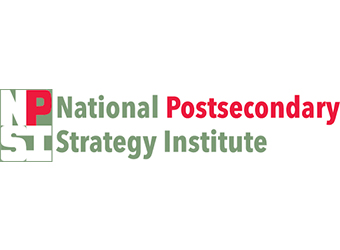 In 2004, out of 100 incoming Chicago Public School freshmen, only six were projected to earn a college degree. That was the startling statistic on the cover of the Chicago Tribune that set in motion a new approach to dramatically increase the outcomes for students.
In 2004, out of 100 incoming Chicago Public School freshmen, only six were projected to earn a college degree. That was the startling statistic on the cover of the Chicago Tribune that set in motion a new approach to dramatically increase the outcomes for students.
As key leaders in the district at the time, National Postsecondary Strategy Institute (NPSI) experts Dr. Joyce V. Brown (school counseling director), Greg Darnieder (director of the Department of Postsecondary Education and Student Development), and Kelly Sparks (data director) created what would become the core of their approach to student success.
What is the NPSI Model?
NPSI believes that change takes place when districts build a robust postsecondary advising plan that leverages external partnerships. The three key components to the NPSI model are:
- Leadership: Getting senior district leadership buy-in is critical to providing the resources needed to significantly improve opportunity gaps
- Data Strategy: Using data strategically to inform decision making, particularly around closing opportunity gaps
- School Counselor Engagement
“Although these three components are present in most school districts, they often operate in silos,” Dr. Brown noted.
Applying the NPSI Model in Florida
Carol Lopez, supervisor of college and career readiness with Broward County Public Schools, the sixth-largest school district in the nation, utilized the NPSI model to strengthen student postsecondary access and success.
The NPSI model informed Broward’s strategic plan in several key areas:
- Building a cadence of experiences across PreK-Adult around college, career, and life readiness
- Enhancing and expanding personalized educational pathways that offer the full range of postsecondary options to align postsecondary plans with student goals
- Increasing the district’s counseling and postsecondary advising team from five full-time staff to 22
- Partnering in the creation of Broward’s local college access network (LCAN) Bridge 2 Life
- Leveraging the power of trained student influencers to mentor peers in college and career readiness
How Partnerships Help
The presenters shared several ways partnerships are critical to strengthening the impact school districts can have:
- Trust: Community partner organizations will often have trusted relationships with students, parents and families that can provide support in areas like FAFSA completion.
- Resources: Partner organizations have access to resources, including staff time and grants that the school district doesn’t have.
- Thought partners: Community partners can bring fresh eyes to existing challenges that can help ideate new potential solutions.
- Extend reach: Community partners can offer more support to students than districts can do on their own.
About the Guest Presenters
Among their accomplishments, Dr. Brown was a founding member of the National Consortium for School Counseling and Postsecondary Success (NCSCPS), Darnieder previously served as senior advisor to former US Department of Education Secretary Arne Duncan on the College Access Initiative, and Sparks was principal researcher at American Institutes for Research (AIR) where she led the college and career readiness group and served as the director of the National Charter School Resource Center. Lopez was recognized in 2018 as an FCAN Unsung Hero of Resilience and spearheaded Broward County Public Schools’ innovative BRACE Cadets program that offers peer-to-peer college readiness mentoring. Lopez is celebrating her 20th year in education and is co-chair of Broward’s local college access network Bridge 2 Life.
Show Notes
To learn more about NPSI’s district-wide approach to bolster student success — or to view the webinar and download the presentation — take advantage of these resources:
You can also learn more about how Broward trained its students as influencers to provide peer mentorship around college and career readiness by tuning into next week’s webinar, “Peer Power: The Untapped Source to Increase College Access.”
Be sure to visit our Past Webinars page for access to recordings and downloadable material from FCAN’s previous presentations.
